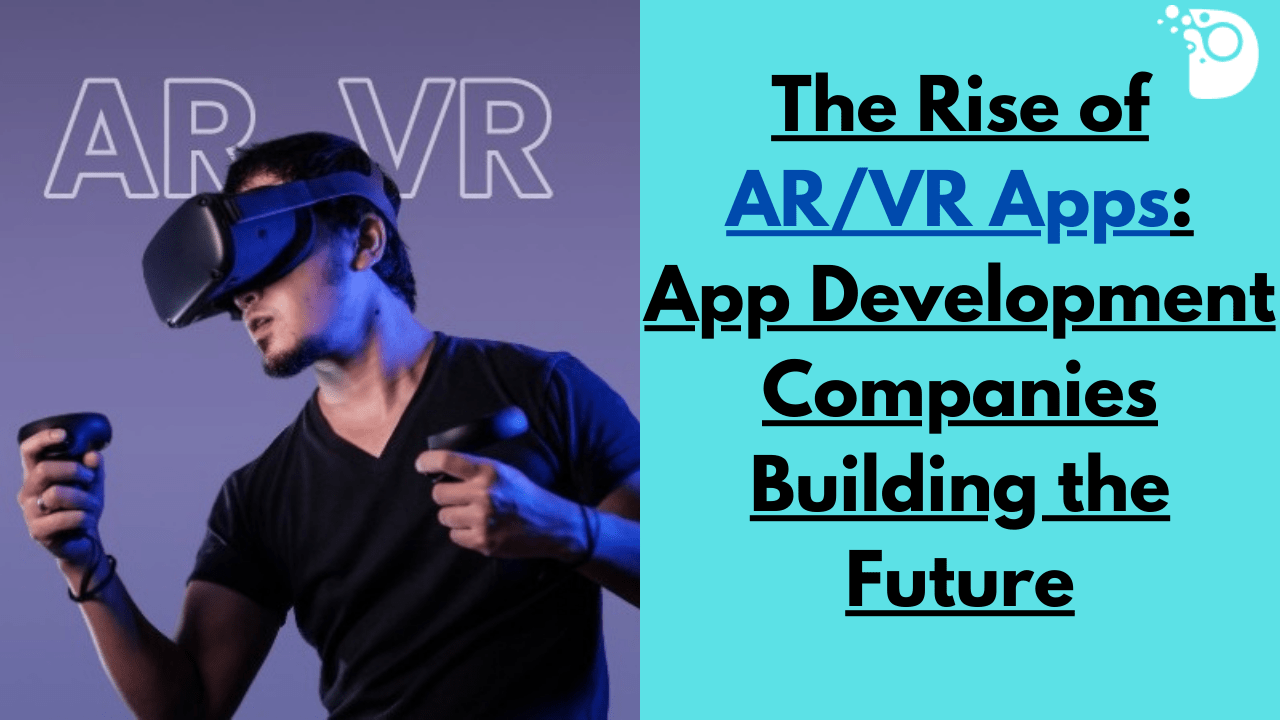Think about a society in which it was enjoyable to study history by simply strolling in the streets of modern Rome, or simply going to a concert enjoying the same atmosphere of the first rows no matter the distance. That’s not fiction anymore – that’s AR and VR in practice and virtuality is the future that is closer than many of us think. And leading this trend are innovative app development firms.
A Reality Check: New Mobile Generation: AR and VR apps
The market for AR and VR is rapidly expanding and is likely to continue to as the technology advances and the applications for its usage increase. Statista reports that the future of the AR/VR market is set to grow to an astounding $300 billion by 2025. Sales are up because of the enhancement of technology and the popularity of headset due to the low price that they come with and the desire of people for Virtual Reality. This opportunity has not been missed by app development companies and they are now coming up with inventive apps that are revolutionizing industries and changing the face of this world.
Beyond Gaming
By analyzing some of the most popular and effective AR/VR apps, it is possible to see the influence they have on industries. Although the current interest in the AR/VR is attributable primarily to the possibility of incorporating gaming, the potential use cases are much broader.
Education: Conceivable classroom scenarios include Egyptian pyramids in AR and actual frogs in VR for dissection. It is a testament to the software development companies that seek to develop applications that make learning more engaging and effective.
Healthcare: Augmented Reality (AR) consequently has the capacity of enhancing medical training through simulation where actual surgeries can be rehearsed through a computer. VR can also be applied for treating phobia or for managing the pain, so it gives patients the possibility to have a brand new approach to the way their health is managed.
Retail: Using its augmented reality feature, a firm can show a customer where a given piece of furniture will fit in her living room without having to purchase the item first. Likewise VR can provide a unique progressive shopping experience where customers get a chance to visit stores or could even take a tour of different parts of the world just to shop.
Manufacturing and Design: New AR apps are being developed by app development companies that can place design plans on an object by using the camera input of an android phone or tablets. Further, implementation of VR can be in occasions such as training or evaluating product prototypes can be tested in VR.
Building the Future: The Skills And The Challenges Required For AR/VR App Development
Utilizing AR/VR to create apps poses certain demands that are significantly different from typical app design. The authors have summarized the key issues that app development companies need to consider, after understanding the essence of app development, 3D modeling, UX design, and the challenges of implementing AR/VR in the development of apps and games.
One of the significant barriers is the procurement cost as well as availability of VR headsets. However, developments in technology constantly bring down the price range of the gear and therefore expand the accessibility of Virtual Reality (VR) on a bigger scale. Moreover, it is a sensitive fact that high quality AR/VR can be reached only through huge investments in terms of development time and efforts.
The Future is Now: Investing in AR/VR app development
So for many progressive developing companies that focus on app development, AR/VR means a vast and fascinating field.
Early Mover Advantage: As the market for mobile applications steadily continues to grow, app development companies who enter it first stand to benefit greatly from it.
Unleashing Creativity: AR/VR can afford totally new types of experiences for the user, straying further away from the app paradigm than conventional apps.
Meeting Future Demands: AR/VR technology will remain focal due to its increasing adoption by consumers as IT becomes mainstream. No doubt, this is an area of potentially high demand for application development and companies that invest in this line will be in a good position to cash in on the demand in the future.
Conclusion
The availability of apps in AR/VR is a great advancement that has brought a change in our interaction with the devices. Any company that takes on this new frontier of application development will then be in a position to help chart the future. The full promise of AR/VR in education and healthcare, retail and design, is visible today: they have the power to alter reality.
Frequently Asked Questions (FAQs)
Q1: What are AR and VR apps?
Ans: Augmented Reality (AR) apps overlay digital content onto the real world through devices like smartphones or AR glasses. Virtual Reality (VR) apps, on the other hand, create immersive, entirely digital environments that users can interact with through VR headsets.
Q2: How are AR and VR apps transforming various industries?
Ans: AR and VR apps are revolutionizing industries such as healthcare, education, real estate, and entertainment by providing immersive experiences, enhancing training and learning, and improving customer engagement and services.
Q3: What are the key benefits of AR/VR apps for businesses?
Ans: The key benefits include enhanced customer engagement, improved training and education, innovative marketing opportunities, and the ability to provide unique, immersive experiences that can set a business apart from competitors.
Q4: What challenges do app development companies face in creating AR/VR apps?
Ans: Some challenges include high development costs, the need for advanced hardware, ensuring user comfort and avoiding motion sickness, and the complexity of creating realistic and responsive virtual environments.
Q5: What skills are essential for developers working on AR/VR apps?
Ans: Essential skills include proficiency in programming languages like C# and C++, knowledge of 3D modeling and animation, experience with AR/VR development platforms like Unity and Unreal Engine, and an understanding of user experience (UX) design principles for immersive environments.






